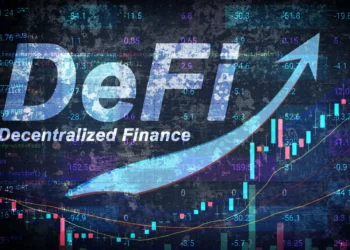Cross-chain interoperability is crucial for decentralized finance (DeFi) as it enables different blockchain networks to communicate and exchange value with each other. It allows DeFi applications and assets to interact across different blockchains, increasing innovation, liquidity, and interoperability.
Cross-chain interoperability provides users with more opportunities to trade and exchange assets, leading to potentially lower fees and increased liquidity in the DeFi space.
Purchasing Crypto Currencies
When it comes to purchasing cryptocurrencies, users must choose between brokers, digital asset exchanges, or direct exchanges with a seller. Exchanges, are the most popular option due to lower fees and a more user-friendly experience than brokers.
However, users must also decide between centralized and decentralized exchanges, depending on their priorities for asset availability, security, and privacy. Decentralized exchanges may offer greater privacy, security, and cross-chain interoperability, while centralized exchanges may provide greater asset availability and liquidity.
Brokers can also be a viable option, providing greater asset availability and personalized trading experiences, but often come with higher fees than exchanges. However, brokers may not offer the same level of transparency and security as decentralized exchanges, and may not support cross chain interoperability.
Advantages Of Centralized Exchanges
Centralized exchanges, or CEXs, have become a popular choice for beginners who want to invest in cryptocurrencies due to their user-friendly interface and similarity to traditional trading platforms.
These exchanges also offer advanced features like futures and derivatives trading, deep liquidity, and asset custody services. However, it’s important to consider the potential risks of using a centralized exchange, such as the possibility of hacks or breaches.
One of the advantages of using a CEX is the option to leverage investments through margin trading, which allows investors to reap higher returns, but losses can also be amplified.
Additionally, CEXs offer an extra layer of security and reliability when it comes to transactions and trading, making them a comfortable choice for many users. Ultimately, the decision between a centralized or decentralized exchange depends on the individual’s preferences and priorities.
Disadvantages Of Centralized Exchanges
In centralized exchanges (CEXs), it’s critical to know that clients don’t have control over the integrated wallets because they are components of the system, the exchange owning the private keys can be risky as there is a danger of complete loss if the exchange succumbs to vulnerabilities.
Although such incidents are uncommon, they have happened before, resulting in losses of billions of dollars.
One of the disadvantages of centralized exchanges is that external parties, authorities, and legal teams have control over the trades, which is a point of contention. Furthermore, providers are required to gather detailed data from customers to prevent financial fraud, which is contradictory to the main idea of cryptocurrencies.
In addition, CEXs are vulnerable to security risks such as hacks and theft, as they hold large amounts of assets in a central location. This can lead to the loss of user funds and damage to the reputation of the exchange.
CEXs also have limited liquidity as they rely on a centralized order book, which can result in issues such as price manipulation and low trading volume for certain assets.
Finally, CEXs can have slow processing times for trades and withdrawals due to their centralized infrastructure, which can result in delays and frustration for users. Additionally, CEXs often charge high fees for trading and withdrawals, which can be a barrier to entry for many users and can also eat into profits for traders.
Advantages Of Decentralized Exchanges
Decentralized exchanges (DEXs) offer several advantages over centralized exchanges (CEXs). Participants in a DEX trade directly with each other, with no external intermediary involved, and each client has full control over their private keys and thus their crypto assets. This eliminates the need for government guidelines, restrictions, and system monitoring that are typically present on CEXs.
A major highlight of trading on a DEX platform is user anonymity, as there is no identification process, KYC, or personal information stored on foreign servers. The exchange process typically starts with a user’s personal address required on the relevant blockchain, and there is no confidential data exchange between the exchange and the authorities.
To enable low-cost trading with a large number of trade pairs, a decentralized server network is deployed on a DEX platform. This drastically reduces the chances of a system breach and virtually eliminates the risk of inaccessibility due to server failure.
Furthermore, a DEX cannot target a central server as it directly resides on the blockchain, providing greater security and transparency.
Overall, DEXs offer greater security, privacy, accessibility, and transparency compared to CEXs, making them a popular choice for users who value these features in their cryptocurrency trading. As the blockchain ecosystem continues to evolve, DEXs are likely to become more mainstream, providing a robust and decentralized infrastructure for the cryptocurrency ecosystem.
Disadvantages Of Decentralized Exchanges
Decentralized exchanges (DEXs) offer several advantages over centralized exchanges, such as increased security, privacy, and control over funds. However, there are also some disadvantages associated with DEXs.
Trading on a decentralized exchange is typically much slower than trading on a centralized exchange. This is because miners must validate each transaction, which differs according to DEX to DEX. As a result, decentralized exchanges are unsuitable as trading venues when it is important to react to changing market conditions quickly.
A successful exchange requires high liquidity. Therefore, the widely traded platforms are always the ones with the exchanges having the highest liquidity. Due to the newness of the idea of decentralized exchanges, there are many fewer traders than on centralized exchanges.
As a result, liquidity is severely reduced. DEX’s usefulness is currently restricted. Furthermore, the graphical user interface is sometimes too complex for beginners. Moreover, many traders do not have access to limit orders, margin transactions, or stop losses.
However, most decentralized exchanges are focused on implementing the centralized exchange-like functionality.
What is the Future Like for Crypto Exchanges?
Cryptocurrency exchanges have come a long way since the early days of Bitcoin. Nowadays, there are so many exchanges out there that allow you to trade cryptocurrencies and other digital assets.
The exciting thing is that the potential directions for the evolution of cryptocurrency exchanges are varied and exciting, thanks to the rapid pace of technological innovation and the increasing popularity of cryptocurrencies.
One potential direction for the future of cryptocurrency exchanges is decentralized exchanges (DEXs). DEXs use blockchain technology and smart contracts to allow users to trade cryptocurrencies without intermediaries. This means that users can maintain control over their assets without the need for a centralized authority.
DEXs, have gained popularity in recent years because of their increased security and reduced risk of hacking and theft. However, they still have some challenges to overcome, such as low liquidity, which may hinder their growth and adoption in the near term.
Another exciting direction for cryptocurrency exchanges is the development of hybrid exchanges. Hybrid exchanges combine the benefits of both centralized and decentralized exchanges, offering the security and liquidity of centralized exchanges with the user control and anonymity of decentralized exchanges.
This means that users can enjoy the best of both worlds, depending on their needs and preferences. Hybrid exchanges have already gained traction in the market, and some of the most popular ones such as Binnacle have been able to offer users multiple trading options such as margin trading, futures, and spot trading on both centralized and decentralized platforms.
However, hybrid exchanges face the challenge of striking a balance between user control and regulatory compliance, which will require careful navigation in the coming years.









